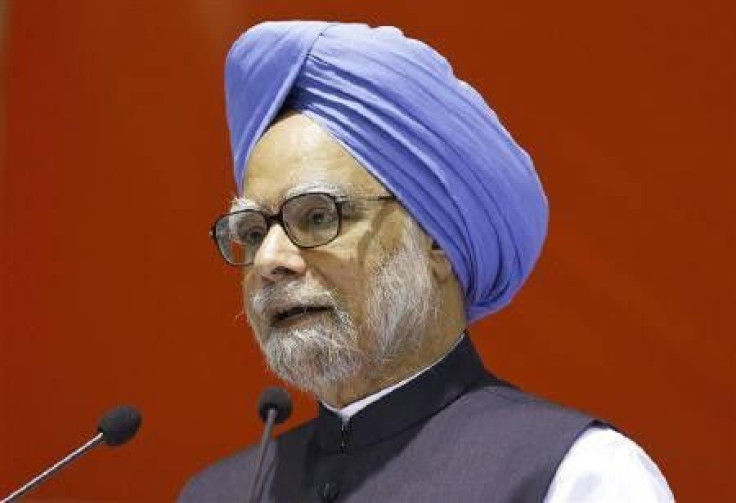Indian PM Singh Turns 80: Other Octogenarians In Power

Indian Prime Minister Manmohan Singh turned 80 on Wednesday, making him one of the world’s eldest leaders.
Battling dissension and defections among his fragile ruling coalition, the United Progressive Alliance, over controversial economic reforms and rising fuel prices, among other grievances, Singh is still not the oldest serving Indian PM.
Morarji Desai was 83 when his term ended in July 1979. Atal Bihari Vajpayee (who served three times in office) was 80 when his time in charge expired in 2004.
But India’s two most famous prime ministers never made it as far as Singh -- the first PM, Jawaharlal Nehru, died in office at the age of 75 in 1964, while his daughter, Indira Gandhi, was only 67 when an assassin’s bullet ended her term in office and her life in 1984.
Is Singh too old to remain in power?
Indian writer and historian Ramachandra Guha believes Singh should retire from office.
“Had Manmohan Singh retired in 2009, history would have remembered him as one of the two main architects … of economic liberalization in India and as a moderately successful prime minister,” Guha wrote for BBC. “But, unable to resist the lure of office, he stayed on. In his second term, he has presided over what is arguably the most corrupt government in Indian history.”
Lakshmi Chaudhry, an editor at First Post, suggests that prime ministers in India should be subject to a mandatory retirement age, just like private citizens.
“Government employees are forced to retire at 60, while private companies extend the limit up to 70 for their senior-level executives,” he wrote. “No one keeps them on even if they can still do their job. But our graying dinosaurs get to hang on forever, arguing age is no measure of their fitness to rule.
"Older is not necessarily wiser, especially in Indian politics. The more time a politician spends in our corrupt system, the more time they have to accumulate unsavory political baggage and debts. ... Seniority is often a euphemism for entrenched power that has little to do with political merit.”
Singh’s term as prime minister is scheduled to expire in 2014, when he will be 82 years old.
However, that august age would not even place him in the top 10 list of active geriatric heads of state.
The oldest current national leader is 90-year-old Cuthbert Sebastian, the governor-general of St. Kitts and Nevis, a tiny island in the West Indies. (However, Queen Elizabeth II is the actual head of state of this small nation, while the prime minister conducts affairs of state.)
The next eldest leader is Shimon Peres, the 89-year-old president of Israel -- again, a ceremonial position with no real power.
Indeed, the oldest active head of state who actually wields genuine authority is none other than the redoubtable Robert Mugabe, the 88-year-old president of Zimbabwe, a country he has ruled for more than three decades. Mugabe’s age has frequently been discussed in African and foreign media, leading to speculation that he is infirm and will soon have to relinquish power (although he has repeatedly denied he will do any such thing).
An interesting case of age concerns another African leader --- Abdoulaye Wade, the former president of Senegal who was denied a third term earlier this year by challenger Macky Sall. Wade claims he was born in 1926, which would make him 86 years old, However, his opponents believe he is several years older, as recordkeeping in the 1920s were less than reliable. If these suspicions are correct, Wade may have been one of the eldest heads of state up until this year.
Fidel Castro led communist Cuba until the age of 85 when he finally stepped down in 2011.
In the United States, the oldest serving president was Ronald Reagan, who resided in the White House until he reached the age of 77 in 1988.
The eldest British prime minister in history was William Ewart Gladstone, whose second term in office ended in 1894 at the age of 84. (Winston Churchill was a “sprightly” 81 when he resigned as PM in 1955.)
© Copyright IBTimes 2024. All rights reserved.











